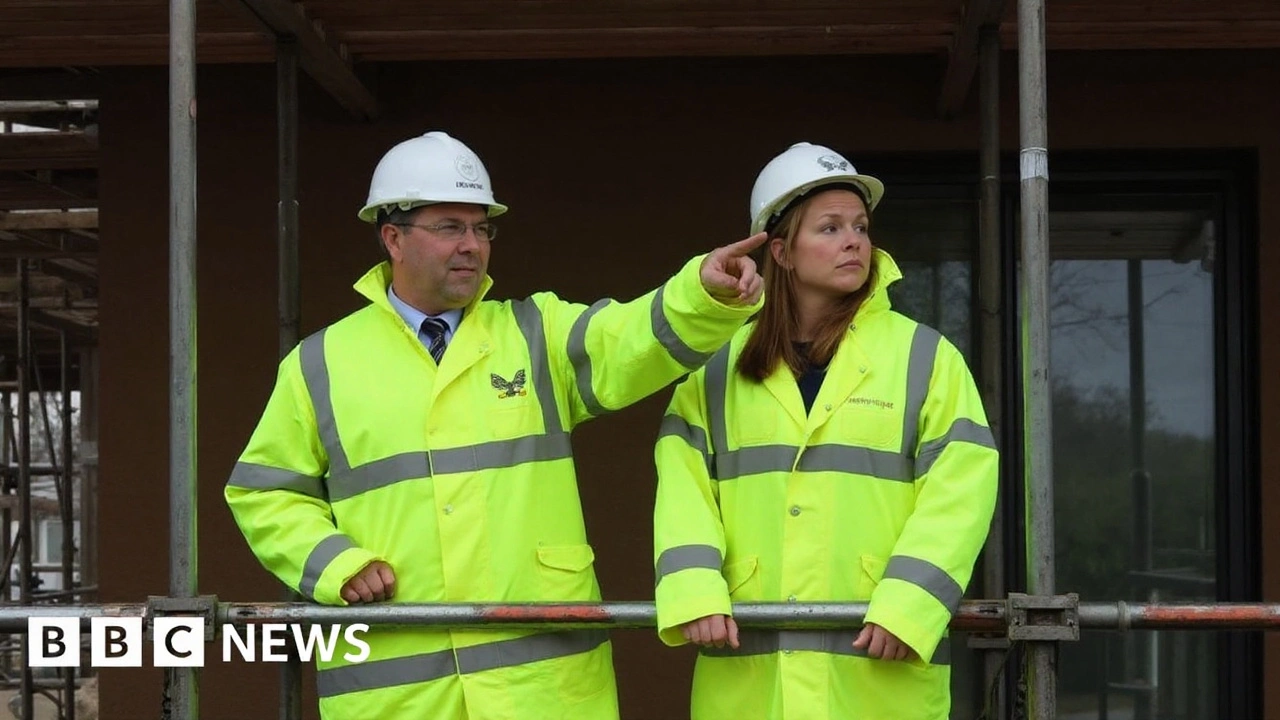The error that brought down a deputy prime minister
A £40,000 tax shortfall on an £800,000 seaside flat has cost Angela Rayner three of the biggest jobs in British politics. After weeks of scrutiny over a miscalculated stamp duty bill tied to a property in Hove, the Labour deputy leader resigned on September 5, 2025, stepping down as Deputy Prime Minister, Housing Secretary, and deputy leader of her party.
The chain of events began in May, when Rayner bought the Hove flat and paid around £30,000 in stamp duty. She believed she was paying the standard rate for a main home. By August, she accepted she should have paid about £70,000 because the purchase counted as an additional property under rules that treat some trust-held homes as if they are still owned by parents. The gap: £40,000, plus interest and any penalties owed to HMRC.
At the heart of the case is a tangle of family and property arrangements that would test most lawyers. In 2016, Rayner and her then-husband bought a home in Greater Manchester. In 2020, following an NHS compensation payment for their son, they set up a trust to fund his long-term care. After their 2023 divorce, ownership of the Manchester house was reshaped: the trust held half, while each parent kept a quarter. This year, before buying in Hove, Rayner sold her remaining 25 percent to the trust, taking its stake to 75 percent.
That restructuring turned out to be pivotal. UK rules on higher rates for additional dwellings are unforgiving where minors and trusts are involved. When a child owns a property interest through a trust, parents can be treated as if they still own it for stamp duty purposes until the child is 18. That meant HMRC could see Rayner’s Hove flat not as a replacement main home, but as a second property subject to the higher surcharge. On an asset worth £800,000, that difference is measured in tens of thousands of pounds.
Rayner says she took legal advice and did not try to dodge tax. The problem, critics argue, is that the advice appears not to have come from specialists in the stamp duty regime. That distinction matters. Property taxes are full of edge cases where mainstream legal guidance can miss a detail that flips the tax outcome. SDLT rules around trusts, minors, and ownership attribution sit in exactly that territory.
Here is how the saga unfolded, step by step:
- May 2025: Rayner completes on an £800,000 flat in Hove and pays around £30,000 in stamp duty.
- August 2025: Media reports highlight discrepancies in the stamp duty calculation linked to trust rules and additional property surcharges.
- September 3, 2025: Rayner refers herself to the Prime Minister’s independent adviser on ministerial standards.
- September 5, 2025: She resigns as Deputy Prime Minister, Secretary of State for Housing, Communities and Local Government, and as Labour’s deputy leader.
The timing made the story explosive. Labour has been trailing changes to property taxation to shore up the public finances. As Housing Secretary, Rayner was front and centre of the government’s housing agenda while the Treasury weighed options that could mean higher bills for some owners. For voters, the optics were brutal: the minister in charge of housing policy caught out by her own property tax bill.
Downing Street accepted her resignation swiftly, aware that a drawn-out process would damage the wider agenda. The party now faces a scramble to fill two political gaps: the deputy leadership and the housing brief, both pivotal to the government’s message on living costs and growth. An interim minister is expected to steady the department while Labour moves to appoint a permanent replacement.
Rayner has notified HMRC and has committed to pay what she owes. In practice, HMRC will calculate the difference between the amount paid and the correct figure, add statutory interest, and consider a civil penalty. Where taxpayers disclose errors themselves and can show they took advice in good faith, penalties can be reduced substantially. Deliberate wrongdoing is treated very differently from an error made without intent. Nothing so far suggests this will become a criminal matter.
For ministers, though, ministerial standards do not hinge on intent alone. The code stresses the need to uphold the integrity of public life and avoid any perception of special treatment. By referring herself to the independent adviser before resigning, Rayner tried to separate the tax dispute from her government roles. The adviser’s review will likely focus on two questions: whether she acted with due care in handling her tax affairs, and whether her position overseeing housing policy created a conflict until the matter was resolved.
The case is also an awkward moment for the machinery of government. Senior appointments go through propriety and ethics checks. Candidates declare financial interests, property holdings, and potential conflicts. Those checks aim to flag risks, but they are not full forensic audits of complex tax positions. If a specialist technical point on trusts and stamp duty slipped through that net, the Cabinet Office will face questions about whether its process is fit for purpose as more MPs hold multiple homes or family trusts.
Rayner’s living arrangements added to the confusion. She juggled three addresses tied to her roles: her constituency home in Ashton-under-Lyne, an official grace-and-favour flat at Admiralty House in central London, and the Hove flat. For council tax, her main residence remained the constituency address. But a council tax main home is not the same as a main home for stamp duty, where the tests for replacement and additional property surcharges are more rigid. That mismatch often catches people out.
Why did the stamp duty classification switch on the Hove purchase? Two features typically drive these outcomes. First, the higher rates for additional dwellings apply broadly to anyone who owns, or is treated as owning, another residential property at completion. Second, certain trust arrangements where a minor is the beneficiary can attribute that beneficial ownership to a parent for stamp duty. Combine those rules and you can have a parent who has sold a direct stake in the family home, but who is still counted as an owner because their child holds the property through a trust.
There are reliefs that can help in less tangled cases. If you sell your main home and buy a new one, you can often avoid the higher rates or reclaim the surcharge later. But those reliefs rely on strict criteria and time limits, and they usually assume you and your spouse do not still have an interest in another dwelling at completion. Trust ownership by a minor scrambles that logic. The law’s intent is to prevent families from using trusts to step outside the surcharge while still controlling a second property.
Politically, the fallout is already visible. Opposition figures have seized on the story to accuse the government of double standards. Inside Labour, allies privately stress that the trust was set up to fund a disabled child’s care, not as a tax vehicle, and say the resignation is about accountability rather than guilt. Both can be true: a family trust can be essential for care needs and still create a tax trap when property changes hands.
For the housing department, the practical question is what happens next to a heavy legislative agenda. Work on planning reform, social housing targets, and private renting measures cannot pause for long. The new minister will inherit a demanding brief: speeding up building without stoking prices, fixing a creaking private rental market, and keeping first-time buyers in reach of ownership. That would be hard work in the best of times. It is harder still when the department has just lost its political leader in a tax row.
The episode also drops into a wider national story about trust in political leaders. Voters know the tax code is complex. They do not expect ministers to be experts on everything. What they do expect is careful judgment on issues that collide with their public roles. Recent years have seen a series of tax and ethics controversies, each different in detail but similar in effect: they drain bandwidth and blur a government’s message. This one lands squarely on the government’s signature theme of fairness.
What should we look for now? Three things. First, HMRC’s final calculation and whether any penalty is applied or suspended in light of early disclosure. Second, the independent adviser’s report on ministerial standards, which will shape whether Rayner could return to the front bench later. Third, how quickly Labour stabilizes the housing brief and fills the deputy leadership. Political recovery often hinges on speed as much as substance.
There are two practical lessons for anyone dealing with trusts and property. One: when a minor is involved, assume the rules are tougher than they look, and get specialist SDLT advice before you sign. Two: what counts as your main home can differ across taxes and regimes. A council tax designation, a capital gains test, and a stamp duty surcharge all use their own logic. Mix them up, and you can get an expensive surprise on completion day.
As for Rayner, she will stay in Parliament for now and shift to the back benches while HMRC and the standards adviser do their work. Allies hope the combination of early disclosure, repayment, and an apology will keep the door open to a return. That is not guaranteed. Political comebacks depend on the facts, the findings, and the public mood. For the moment, one of the country’s most prominent politicians has been brought down by a tax rule many homeowners have never heard of.

Politics collides with tax complexity
There is a reason this story resonates beyond Westminster. It shows how technical corners of the tax code can cut through to everyday politics. On expensive homes, small classification differences translate into large tax bills. The Hove flat is a case study: one interpretation of the rules, and the purchase looks like a normal move; another, and the buyer is treated as someone adding a second property, triggering the higher rates.
Expect the government to argue that the system needs clarity so families using trusts for care do not stumble into punishing outcomes they never intended. Expect the opposition to say that ministers must model best practice and cannot afford missteps on taxes they ask everyone else to pay. Both points will be heard. Neither solves the immediate pressure on a housing department already wrestling with supply shortages, high rents, and a planning system that struggles to deliver.
It is rare for a property tax dispute to unseat a deputy prime minister. That it happened at all tells you how fragile the line is between a private financial matter and a public test of judgment. The technical debate will continue in the background, as it should. The political judgment has already been made. And for the thousands of homeowners navigating their own moves, one message cuts through: in the grey areas of property tax, precision beats assumption every time.

Write a comment